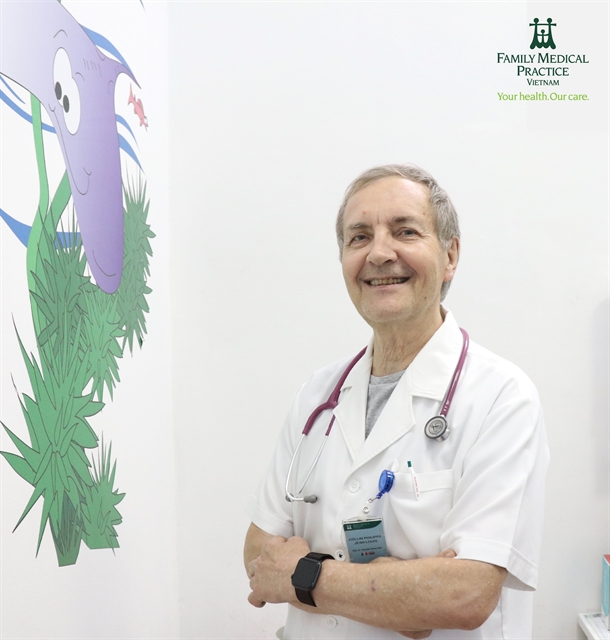 Life & Style
Life & Style


|
| Dr. Philippe Jean Collin. — Photo courtesy of Family Medical Practice |
By Dr Phillippe Jean Collin*
Quality sleep in sufficient quantity supports a child's learning and is important for its growth. Even for school-aged children, the routine before bedtime is important to help them fall asleep.
The daily number of hours of sleep needed varies from one child to another, but generally, from school age, a child needs 10 to 11 hours of sleep per night. In addition, it is better to get used to bedtime always at the same time.
A soothing routine
The time before bedtime should be calm (avoid running or jumping, for example). Homework should be done in the late afternoon or early evening to keep the brain awake. To help your child slowly calm their body and mind, it is advisable to plan a routine to do with them every night before they go to bed. This routine can last from 20 to 30 minutes.
Here are some suggestions for a soothing routine:
The important thing is that the bedtime routine is done in a positive way and in relaxation. Do not be in a hurry, but keep the time controlled all the same. Children tend to want to delay the time to turn off the light. It is therefore desirable not to exceed the 20 to 30 minutes planned. To help your child, you can warn them when you start reading the last story or warn them when they have only five minutes to play in the bath.
Some precautions
Allow some time (ideally two hours) between supper and bedtime, as digestion can interfere with sleep. Avoid exciting foods, such as chocolate and all other foods that contain caffeine, including tea, chocolate milk and energy drinks. It is also advisable to avoid screens (computer, tablet, phone, television) before bedtime. Indeed, the brightness of the screens would tend to awaken the brain rather than prepare it for rest.
Sleep problems
Your child may have an anxiety period at bedtime. Be attentive, and if you feel fearful, take the time to listen to them and talk to them about what is bothering them. Sleeping with a toy, favourite dog or a night light could also comfort them.
Temporary sleep problems may also occur (difficulty falling asleep or disturbed sleep, for example). Establishing a routine and creating a resting environment should address these issues. However, if these persist or become too important, it is better to consult a doctor. It is important to resolve sleep disorders, because the longer they persist, the more difficult it is to correct them. A persistent lack of sleep can affect several spheres of the child's development.
Behaviour of parents often involved
A significant percentage of a child's sleep problems are attributable to parental behaviours at bedtime. Some parents adopt overprotective behaviours, such as staying with their children until they fall asleep or taking them to bed when they wake up. However, it is important to accustom a child to fall asleep alone, without the presence of an adult. Thus, if they wake up during the night, they will have less difficulty going back to sleep without help, because they will have learned that they are able to do it by themselves. When the child goes back to sleep alone, their nocturnal awakenings are much shorter, so they can enjoy a longer and more restful sleep. — Family Medical Practice
*Dr Philippe Jean Collin is a French peadiatrician with Family Medical Practice Hanoi. He is a member of the French Society of Pediatrics, American Society of Nephrologists, and the Pediatric Academy Societies.
For more advice on any medical topics, visit www.vietnammedicalpractice.com; www.care24h.com.vn or visit our clinics:
Family Medical Practice Hanoi on 298 I Kim Mã Street, Ba Đình District or call (024) 3843 0748. Email: hanoi@vietnammedicalpractice.com or
FMP’s downtown HCM City location is at Diamond Plaza, 34 Lê Duẩn Street, District 1; Other facilities are at: 95 Thảo Điền Street, District 2. Tel: (028) 38227848. E: hcmc@vietnammedicalpractice.com.
FMP Danang is located at 96-98 Nguyễn Văn Linh Street, Hải Châu District, Đà Nẵng. Tel: (0236) 3582 699. E: danang@vietnammedicalpractice.com.




